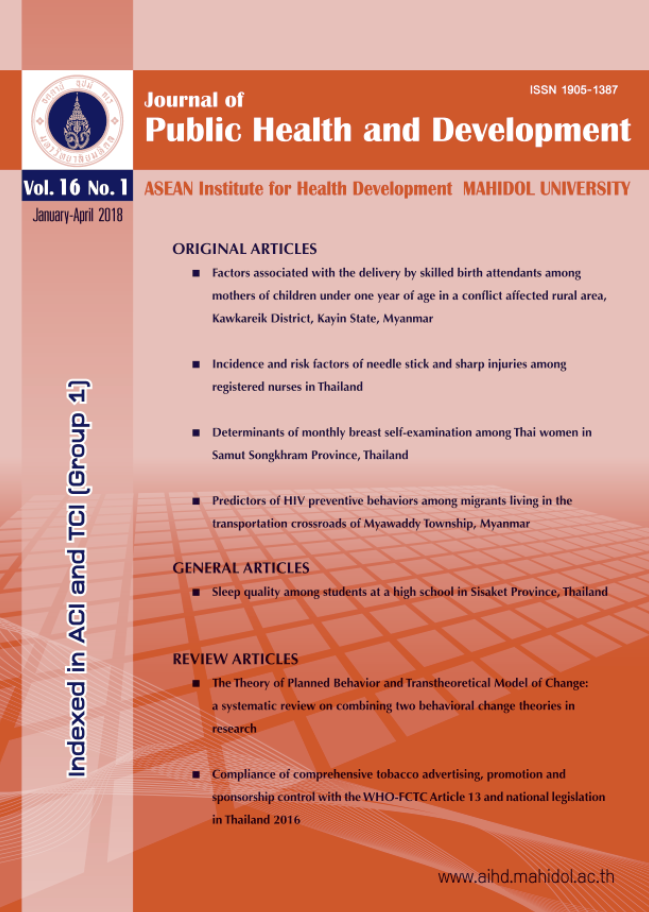Development of media and activities to promote participatory learning for well-being among youths and farmers of Ko Pho sub-district, Nakhon Nayok Province, Thailand
Main Article Content
Abstract
This study aimed to develop media and activities to promote participatory learning to well-being and study the use of media and activities to promote participatory learning to well-being through the participation of farmer leaders, farmers and youths in Ko Pho Sub-district, Pak Phli District, Nakhon Nayok Province using the following steps: 1) participation in identifying problems and needs in a focus group discussion of 20 farmer leaders 2) participation in decision making to select learning promotion media and activities which were appropriate for the community 3) participation in planning, implementing and organizing a learning camp for 15 youths to produce participatory learning to well-being promotion media, as well as adopting the media and organizing participatory learning to well-being promotion activities for 30 farmers 4) participation in monitoring and evaluating knowledge of the participating farmers on well-being and their opinions on well-being both before and after the implementation, as well as evaluating the participatory learning to well-being promotion project. The statistics used for data analysis included percentage, mean, standard deviation and paired t-test. There was one media project originated from the focus group discussion, produced by youths in the community, and adopted to promote learning among the farmers, which is the manual to promote local wisdom called “Manual of Thai Local Wisdom for Health.” In addition, there were five activities arising from the focus group discussion, namely 1) “Well-Being for a Happy Life” Project 2) “Growing Sunchoke for Health” Project 3) “Processing Sunchoke for Health” Project 4) community promotion project called “Livable House, Attractive Ko Pho” 5) exercise promotion and relationship strengthening project called “Sub-district Local Sports Competition.”
Regarding evaluation of knowledge gained from adopting well-being promotion media and activities, the farmers had significant different levels of knowledge on well-being before and after participating in the project (p<0.001). After participating in the project, the farmers had an average knowledge score of 18.43, compared to 12.53 before participating. Regarding evaluation of opinions on their own well-being, the farmers had significant different levels of opinions on their own well-being before and after participating in the project (p<0.001). After participating in the project, the farmers had an average opinion score of 3.83, compared to 3.34 before participating. For evaluation of the farmers’ opinions on well-being promotion project, the farmers had the overall opinion score of 3.93 which is at a high level.
The result of this study suggested that true participation to take place, the target group must be clear. The implementation must have the objectives or goals, and activities clearly identifiable. Every sector should be involved in every step such as identify problems and needs, making decision, planning and implementation, as well as monitoring and evaluation to encourage true participation.


